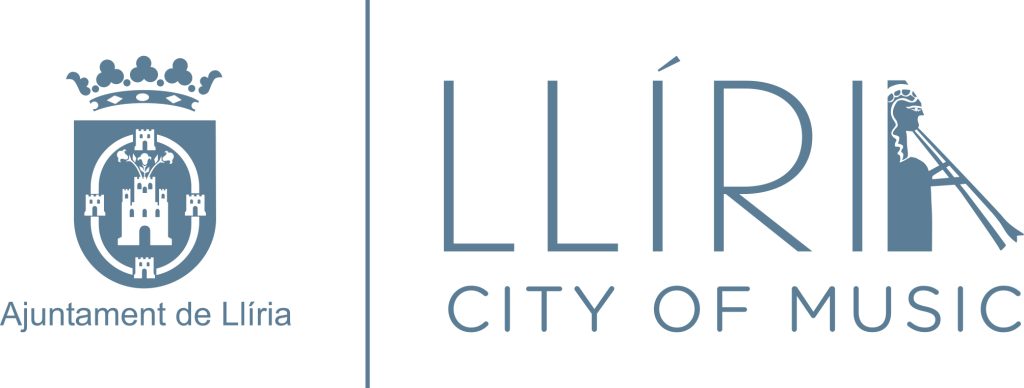From the very beginning of the organization of the 1st “Llíria City of Music” International Conducting Competition, it was clear for the City Council that artistic direction was a key component to ensure the success of the competition. That was the moment when they contacted Cristóbal Soler, who is one of the most important conductors of his generation.
Only a few days before the beginning of the competition, we talked to him about the artistic elements of the appointment: repertoire, jury or assessment criteria, among many other aspects.
Question: Llíria is a reference in the field of music, even more so since its designation as Creative City by UNESCO. The Orchestra Conducting Competition is the first major initiative, what does organizing this competition mean to Llíria?
Answer: I think it is one of the best artistic musical initiatives to place value on the city of Llíria, for these cultural projects, as they consolidate, they position their city on the international map.
Q: The competition began its organization many months ago and you have participated practically from the start, as an artistic director. How do you receive the proposal? What does this artistic direction mean to you?
A: Given the designation that the city of Llíria receives as “Creative City” in the category of Music by UNESCO, the City Council (through its Department of Culture, represented by Pedro Alamà) contacts me to propose a musical project that reinforces such denomination.
Considering, as president of the Spanish Association of Orchestra Conductors (AESDO), that Spain had been left without the international orchestral conducting competition of Cadaqués for a few years, we understood that it was necessary to perfectly fill this empty space with a new project from Llíria.
It is a great honour, and I am very pleased to create, together with the City Council and a team of trusted people, a musical event with an artistic dimension of unique international outreach, with the main objective of supporting young talent and excellence in conducting.
Q: The protagonists of the competition are young conductors who face a unique opportunity, right?
A: Indeed. There has been a previous selection of 188 candidates finally reduced to 25 candidates. During the competition week, they will be assessed by a very competent jury, in such a way that those who reach the final will have the opportunity to become known by prominent personalities from the professional world of orchestra conducting, such as chief conductors, orchestra managers, managers, critics, etc. In addition, the winner may be hired by ten of the main symphony orchestras in our country.
Q: 188 candidates registered in the competition, but only 25 will compete. They face a demanding and varied repertoire, with works by Stravinsky, Tchaikovsky, Mozart, Beethoven… What can you briefly tell us about the repertoire?
A: It is important for a competition that, in its eliminatory phases, the interpretation and conduction of the different styles and genres of the orchestral music of the great composers are addressed, as well as the interpretation of a newly created piece. On this occasion, the new creation has been composed expressly by our most international current composer, Francisco Coll. I believe this objective is clearly reflected in the repertoire required in the different tests.
Q: They will be assessed by a first-rate jury. How was the election of the members of the selection board carried out?
A: We wanted it to be a selection board with vast experience and an international curriculum, reflecting their musical knowledge and wisdom. In fact, all of them have been chief conductors for years in different symphony orchestras, as well as pedagogues in conducting, in American and European universities. In addition, we have invited the composer of the premiere work himself, which will be performed in the final phase, to have a different perspective from the position of the creator and, in this way, he shall be able to contribute his criteria to the final decision.
Q: When a jury must assess the candidates, which criteria do they focus on?
A: There are objective criteria such as precision, rhythm, tuning, sound, balance, and dynamics. But I think the most important thing will be to value what they can communicate, which goes beyond the notes. It is really going to be very difficult to assess, since, in Arts, subjectivity plays a great role and makes the difference and the uniqueness of the artist.
Q: It is a great responsibility because the winner receives a significant award. It is so because, beyond the economic endowment, they may be invited to conduct some of the best orchestras in the national sphere, right?
A: As we mentioned before, the great appeal is the collaboration of the ten main symphony orchestras in our country, since it can be an excellent showcase and a valuable experience for the young conductor, so necessary in the complex professional world of conducting.
Q: Finally, let’s talk about the resident orchestra of the competition, a fundamental part, made up mainly of first-rate musicians from Llíria. Is it an added value of this competition?
A: Among the strengths that a competition of such artistic magnitudes must have is to have a resident orchestra that represents excellence: it is the best business card for the selected candidates who come from all over the world. I think that one of the characteristics of Llíria is that we can rely on excellent professional musicians and soloists who are part of different symphony orchestras, and who this time meet for an event of special magnitude in the history of their city.








